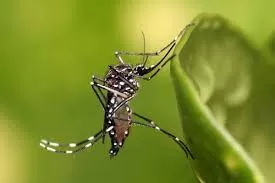In a breakthrough discovery, researchers have unveiled a new weapon in the fight against mosquito-borne diseases: insecticidal paint. A study conducted in two neighborhoods in Praia, the capital city of Cape Verde, Africa, demonstrated the effectiveness of this innovative exterior house paint in combating yellow fever mosquitoes, carriers of various deadly diseases.
Led by researchers at Jean Piaget University of Cape Verde, the study found that the insecticidal paint, named VESTA, released small amounts of insecticide over an extended period, effectively killing Aedes aegypti mosquitoes, which transmit diseases like yellow fever, dengue fever, chikungunya, and Zika virus.
“This research presents a promising strategy for preventing and controlling malaria and other vector-borne diseases at the household level,” stated Lara Ferrero Gomez, lead author of the study published in the journal Frontiers in Tropical Diseases.
The study involved painting 228 houses in two neighborhoods particularly susceptible to mosquito-borne diseases due to inadequate drainage and poor wastewater management. Over the course of a year, researchers monitored the effectiveness of the insecticidal paint through WHO cone bioassays, a method recommended by the World Health Organization to assess the mortality rate of mosquitoes exposed to insecticide-treated surfaces.
Results revealed that all three formulations of insecticide paint—VESTA, ARES, and 5A IGR—achieved complete mortality of Aedes aegypti mosquitoes one month after application. Even after three months, all formulations exceeded the WHO efficiency threshold of 80%.
While VESTA maintained its efficacy throughout the year-long study, the other formulations showed a decline in effectiveness after six months. However, researchers noted that VESTA’s sustained performance over time made it a particularly promising solution.
“The paint works by releasing very small quantities of insecticide over a long period, which makes it more sustainable and eco-friendlier,” explained Ferrero Gomez.
Moreover, the study found minimal adverse effects on residents’ health, with only a small percentage reporting mild eye or nose irritation and headaches.
The success of the insecticidal paint offers hope for communities battling mosquito-borne diseases, particularly in regions like Cape Verde, where such diseases have long been prevalent. By providing a sustainable, eco-friendly, and effective solution, this innovative approach has the potential to significantly impact public health and improve the quality of life for millions worldwide.












